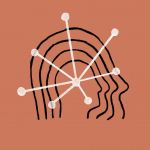Annual growth of AI application in religion reached 80% among American churches

Digital transformation has reached one of the most conservative spheres of human activity – religion. A study by Pushpay platform demonstrates unprecedented growth of artificial intelligence integration into religious practices. Already a full 45% of American churches are using neural networks in their activities right now. Moreover, annual growth reached 80%.
The spectrum of technology use is striking in its diversity: 18% of clergy admit they engage artificial intelligence for writing sermons. 15% – for generating ideas for interaction with parishioners. Interestingly, a significant part of respondents believe that digital technologies do not contradict faith, but on the contrary – strengthen religious beliefs.
Pastor Jay Cooper from Texas conducted his experiment: using ChatGPT, he generated a complete set of materials for worship service – from greeting to 4-verse hymn. And such a marketing campaign using posters depicting robots attracted an atypical audience for church: gamers who previously showed no interest in religious events.
Finnish experience demonstrates an even more radical approach. At St. Paul’s Church in Helsinki, a worship service took place completely created by artificial intelligence – from sermon to visualizations of biblical characters. And in India, where 97% of adult population consider themselves believers, neural networks help create audio mantras and explain the meaning of religious rituals. Well, we’re waiting for when the first neuro-god appears.





